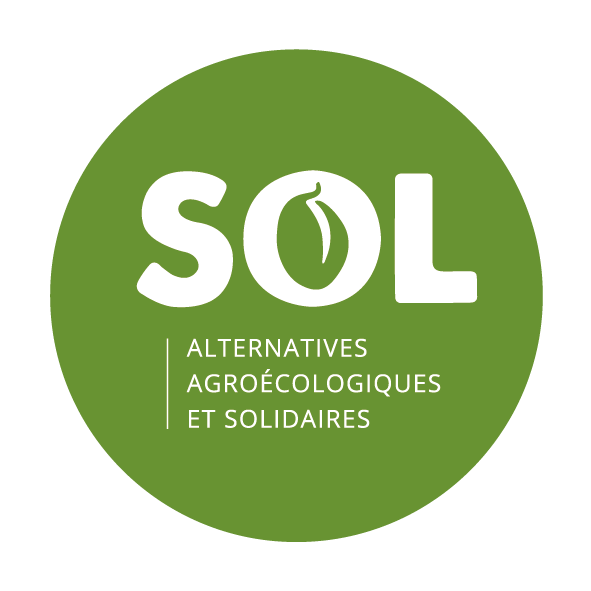SENEGAL : Global Social Forum (2011)
Activity of valorisation of the tropical cereals in the Global Social Forum (2011)
Place of the project : Senegal, Dakar, Cheikh Anta Diop
Time Period : 6 to 11 February 2011
Goals :
- Create a space craft food to raise awareness of Africa to the possibility of finding alternatives attractive to consumers, with products exclusively imported wheat (bread, cookies, pastries and pasta) by replacing products maximizing consumption of local cereals (maize, millet, sorghum, fonio).
- Create links and enable artisans in developing countries to share their expertise in the processing of local cereals and tropical common strategies to protect their food sovereignty.
Beneficiary : Awareness at least 50,000 people present at the WSF and especially women working in food processing and bakers.
Actions leading :
- Invitation of experienced craftsmen with their equipment tin order they produce and make a tasting with their products.
- Making on-site corn tortillas (with two Mexican craftsmen), millet (with two Indian artisans) and local cereal breads and biscuits produced by two French craftsmen and a Brazilian nutritionist. Preparation of local recipe of transformative African (Mali and Senegal).
- Organize a screening debate and two round tables:
* Screening and discussion: "Food Sovereignty. What role for civil society? Examples of actions". Film: The Sahel can feed the Sahel (African Green) and hands to hands and say (Mathieu Soudais Solidarity).
* Round Table: "The needs and possibilities of substitutes for wheat breads".
* Technical and strategic roundtable, bringing together key industry players bread: "Defining a framework for developing alternatives."
In parallel, we will be at the FIARA (International Fair of Agriculture and Animal Resources) in order to meet African stakeholders channels of local cereals. This 12th edition is part of a dynamic capacity of integration of the African peoples through commercial carriers and exchanges and debates on major issues that challenge the Peasant Movement.
AFTER the WSF
• Production and distribution of a film about food from images filmed during the WSF, by Mathieu Soudais.
• Publishing recipe of manufactured products, in French, English and in some local languages ??in West Africa.
WHY space craft food?
Defend food self-sufficiency and economic independence of sub-Saharan Africa (SSA).
According to the Food and Agriculture Organization (FAO), the food deficit (excluding fish) in the SSA has been multiplied by four between 1995 and 2007. 41.4% of the deficit, if we exclude the trade in coffee, cocoa, tea, spices, grains are due to either $ 5.839 billion in 2007.
In particular, SSA produces little wheat so that by 2007, wheat production accounted for only 42% of imports (against 63% in 1995). However, the SSA is selling better than local cereals. Production rose by an average of over 2.5% per year (maize, sorghum and millet). However, if corn yields are important, it is not the case for other cereals produced in SSA, especially in West Africa.
But it is in this area that the shortfall in wheat is the most worrying: net imports of wheat increased from 1.9 Mt in 1995 to 5.1 Mt in 2007, per capita consumption from 9.5 kg to 18.2 kg in 2007. This increased demand has impacted the cost of wheat, which is now an expensive commodity for African households.
Highlight a potential alternative, and available nutrients, seems essential. For this, it is also important to change the eating habits of SSA vis-à-vis wheat, particularly in West Africa.
Our previous experience in this area, particularly in Côte d’Ivoire, proved us that it was possible.
Response to evidence of the global agricultural situation and the continuation of our previous activities in West Africa, SOLIDARITÉ has a project under the World Social Forum, and his commitment to signing the construction of alternatives to the current development model .
Through our actions made during the forum, we will defend the sharing of experiences and techniques as well as local initiatives.
Local Partnership : ROPPA
(Network of Peasant Organizations and Producers in West Africa), represented by Mamadou Cissokho (honorary president and author of "God is not a peasant"), was established in 2000. It brings together organizations from 10 countries of West Africa (Benin, Burkina Faso, Ivory Coast, Gambia, Guinea, Guinea-Bissau, Mali, Niger, Senegal and Togo).
Its main objective is to promote and defend the values ??of a successful and sustainable farming at the service of family farms and agricultural producers. In our project, the network mobilizes local producers, industry actors and institutions involved in agricultural and food sectors.
Financial Partneship : Fph

